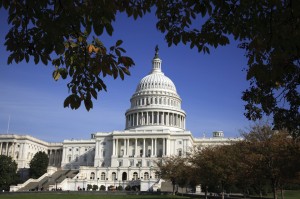On January 11, 2017, a trio of Republican Senators introduced a bill that would change the leadership structure of the Consumer Financial Protection Bureau (“CFPB”) from a single director to a five-member bipartisan “Board of Directors.”
Senate Bill 105, titled “Consumer Financial Protection Board Act of 2017,” introduced by Senators Deb Fischer (R-Neb.), Ron Johnson (R-Wisc.), and John Barrasso (R-Wyo.), and now also co-sponsored by Senator Jeff Flake (R-Ariz.), would make the following changes to the CFPB’s leadership:
- Replace the current single-director structure of the Bureau with a five-member board appointed by the President and confirmed by the Senate, with one member appointed by the President to serve as chairperson.
- No more than three members from one political party.
- Staggered terms, with three of five initial members serving 30-month terms, and the other two (and subsequent) members serving five-year terms.
- No member may be reappointed to a consecutive term, unless that individual had been appointed for less than a five-year term.
- Removal by the President for “inefficiency, neglect of duty, or malfeasance in office.”
The bill also stipulates that board members “must have developed strong competency and understanding of, and have experience working with, financial products and services.”
In a statement, Senator Fischer stated that CFPB Director Richard Cordray’s “bad decisions have kept families locked out of economic opportunity.” Senator Fischer said her bill “would prevent this misconduct by divesting authority from one director to a five-member bipartisan board” and “bring accountability to the Bureau and give more Americans a chance to build their own businesses and provide for their families.”
The bill is currently referred to the Senate Committee on Banking, Housing, and Urban Affairs.
Senator Fischer’s bill represents yet another sign of potential changes to the Bureau’s leadership, structure, and authority.
As we recently reported, President Trump’s February 3 Executive Order signaled the beginning of the administration’s efforts to dismantle parts of the Dodd-Frank Wall Street Reform and Consumer Protection Act (“Dodd-Frank”). Though the Order does not explicitly mention the Bureau, President Trump has repeatedly voiced criticism of Dodd-Frank, which created the CFPB.
Also on January 11, President Trump reportedly met with former Representative Randy Neugebauer (R-Tex.) and is considering him to head the CFPB. When he was in Congress, Neugebauer was sharply critical of the Bureau’s efforts to regulate payday lenders and introduced a bill to overhaul the agency.
Senate Bill 105 also comes as the CFPB continues to fight over the constitutionality of its leadership structure in the U.S. Court of Appeals for the District of Columbia. As we reported, in October 2016, the D.C. Circuit ruled that the Bureau’s leadership structure, with a single director that the President could remove only “for cause” rather than “at will,” was unconstitutional. In that decision, the court also vacated a $103 million increase to a $6 million fine levied against PHH Corp. by Director Cordray. The parties are currently awaiting the D.C. Circuit’s ruling on the Bureau’s petition for en banc review of the panel’s decision. However, if Senator Fischer’s bill’s becomes law it could make any potential CFPB victory a hollow one, as its leadership structure could soon change regardless of the outcome in PHH.
Finally, we have seen this amendment to the CFPB’s leadership in other bills introduced by Congressional Republicans. The Financial CHOICE Act, released in 2016 by Representative Jeb Hensarling (R-Tex.), would have also replaced the director with a five-member commission. However, as we have discussed, the Financial CHOICE Act also proposed a wide range of changes to the CFPB and Dodd-Frank. Given Senate Bill 105’s narrow focus on changing the Bureau’s leadership structure, a transition from a single director to a five-member board would appear more viable through Senator Fischer’s bill.
Nonetheless, one can expect strong opposition from the left to whatever mechanism Congressional Republicans use in attempts to alter the CFPB’s structure or weaken its authority. We will monitor the progress of Senate Bill 105, which is currently referred to the Senate Committee on Banking, Housing, and Urban Affairs.
